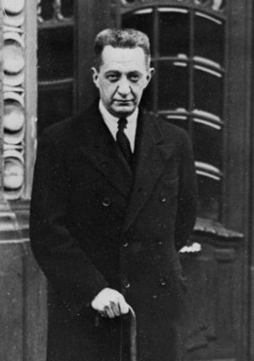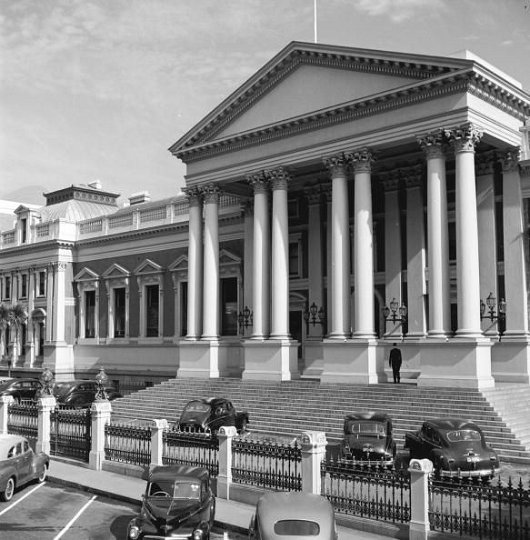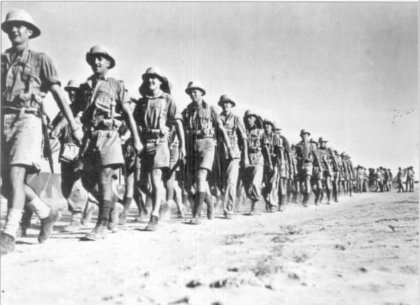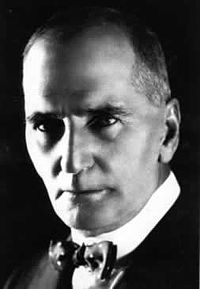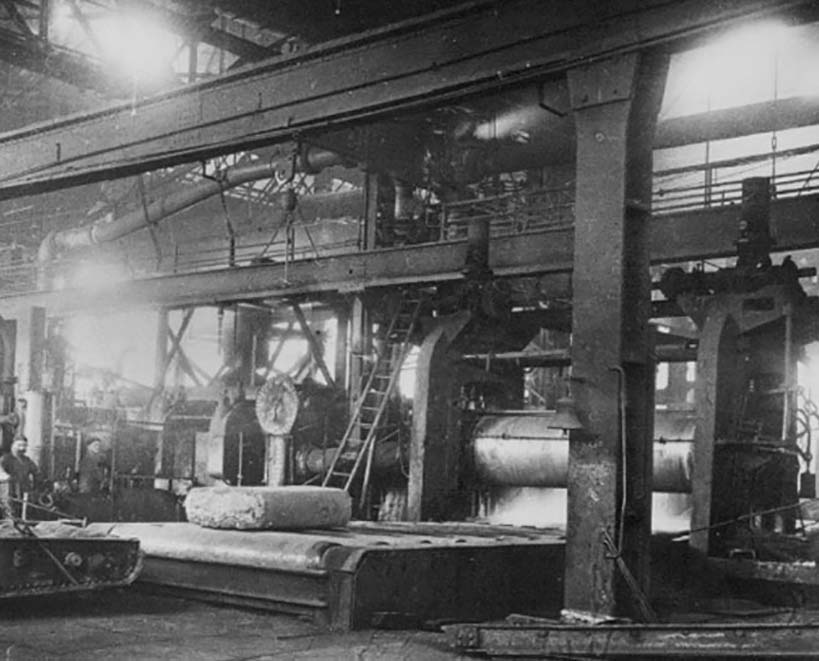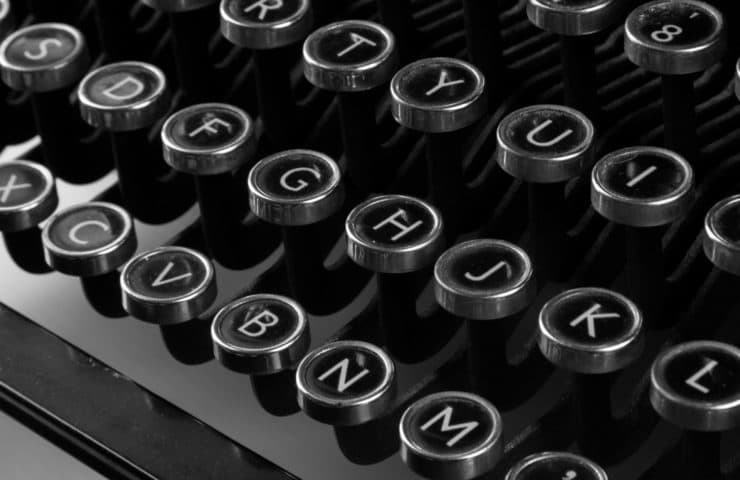Editor: Albertus Geyer
Founded in 1915 to provide news to all South Africa in Afrikaans, Die Burger (The Citizen) is the nation's leading newspaper.
Die Burger
-
Coin
- Mise, Pangur Bán agus PILOT WHALES
- Posts: 1700
- Joined: 14:15:01 Thursday, 02 August, 2012
Die Burger
"This place is going to bloody hell, friend, and no one even knows it. And the few of us who do know, what can we do about it anyway? The old tricks won't work this time. We're trying to hold back the sand. Ah, it's all going to hell." Tavern patron, late 3E Morrowind
-
Coin
- Mise, Pangur Bán agus PILOT WHALES
- Posts: 1700
- Joined: 14:15:01 Thursday, 02 August, 2012
Re: Die Burger
Editor: Albertus Geyer
Founded in 1915 to provide news to all South Africa in Afrikaans, Die Burger (The Citizen) is the nation's leading newspaper.
Kerensky dead!
South Africa is in shock at the news of President Kerensky's assassination. President of the Russian Republic for 15 years, he had led the White forces to victory in the bitter Russian Civil War, and was seen as essential broker in the relative stabilisation of the country since. Shot before the Senate building in Petrograd (St Petersburg), his death has cast a shadow over Eurasia. Questions over who was behind the killing swirl across the globe.
Both the halls of government and the houses of good Afrikaner families have been witness to discussions on the event, and the future of the former Russian Empire. Whatever our opinions on the strange dealings and past of President Kerensky, the manner of his death, and the destiny of the Rus, is in question. Police managed to kill the assassin, but there seem to be precious few clues as to his identity or motive.
The events of over a decade ago, when a coup attempt was thwarted in 1924, are suspected by some of having played a part; but others point the finger at bitter revolutionaries, desperate to throw Russia back into chaos. Whatever the case, Russia is at a crossroads, and the world watches.
Die Burger, The Citizen, offers condolences to the family of the late President Kerensky, and hopes that Russia might steer clear of chaos and syndicalism as she finds her feet in a new era.
German Stock Market Plunges!
The world has also heard grim news from Germany. Perhaps caused by the instability feared across Eastern Europe, the Berlin Stock Market has crashed, with reports of massive losses for speculators and financial institutions reliant on overpriced stocks. Quite what this means for South Africa remains unclear, as the country is not economically reliant on the German Empire, but nonetheless trades with Berlin. The cabinet has been called in from their festive holiday to discuss the situation, with reports of government action to prevent contagion harming the South African economy.
An equally grim prospect for any European recession will be a strengthening in the morale of far-left movements. Mistaking capitalist excess for a sign that their own system is infallible. For if international trade suffers, not only nations with ties to Germany will pay the cost.
Speculation mounts at immigration deals
With the world having become an ever more uncertain place since the Weltkrieg, the old emigration destinations of the European states have suffered somewhat. The British Empire, understandably, has plenty issues of her own; whilst South America and much of Africa is plagued by questions of sustainability. But we might take heart that the increased European settlement in French and German colonies strengthens the civilising mission of nations such as ours.
South Africa is however without doubt among the most stable migration destinations; and one free of imperial associations that lead to such uncertainties within the balance of power. At a recent constituency surgery in the Transvaal, senior government MPs were heard to support a campaign to improve migration programmes from Europe. Great swathes of our republic are little-used, and helping both native chiefs and intrepid Boers to advance civilisation from the Cape to the Zambezi is surely a project all will welcome - and skilled European whites would aid the development both of the agricultural interior, and new centres of industry. South Africa's state exists for all her citizens - as evidenced by the widest franchise and greatest rights given to the native blacks, unheard of in any other major African state.
"This place is going to bloody hell, friend, and no one even knows it. And the few of us who do know, what can we do about it anyway? The old tricks won't work this time. We're trying to hold back the sand. Ah, it's all going to hell." Tavern patron, late 3E Morrowind
-
Coin
- Mise, Pangur Bán agus PILOT WHALES
- Posts: 1700
- Joined: 14:15:01 Thursday, 02 August, 2012
Re: Die Burger
Editor: Albertus Geyer
Founded in 1915 to provide news to all South Africa in Afrikaans, Die Burger (The Citizen) is the nation's leading newspaper.
Fall in International Trade: South Africa SuffersGermany and Europe continue to groan from the effects of Black Monday. Our paper has detailed the drama of their stock markets via our foreign correspondent suppliments over the past months. But the continued difficulties in the international financial arena now strike at South Africa.
Mines and factories in the Traansval and Rhodesia have shut or scaled back production as currencies wobble. The saving grace is of course the price of gold; with proper management, this could steer us out of this recession. Cost-cutting and lay-offs are understandable in these circumstances for coal and diamond mines. But the Labour and National Party recently agreed to prevent cheap African labour from replacing whites in such a case.
South Africa, despite the economic unease, is however in a fine position going forward. Provided the Hertzog administration can control these troubles, and spur investment, the country may yet emerge stronger and more competitive. Rumours reach this paper that Hertzog himself is involved in an economic action plan.
Infrastructure Repair Welcomed Across Subcontinent
Industrialists and farmers alike have welcomed the recent upgrades to transport all across South Africa. From the Great Zambezi Bridge all the way to the Cape, roads and railways have seen significant repairs and improvements. This has helped to ease the difficulties faced by northern regions in particular, and judging by the comments of blacks and whites alike, the more of it the merrier we shall be.
Great care must be taken not to be overly confident; but certainly, for Bechuanaland and Rhodesia, rule by South Africa opens up many great possibilities for us all. Repairs and upgrades to the Beit Bridge, linking Rhodesia and the Transvaal, may help not only with the daily comfort of thousands; but should also grease the wheels of commerce. This in turn is hoped to improve the state of communal and commercial farmers. And with hundreds of new arrivals from Europe every month, many hoping for their own chance to work the land as the mighty Afrikaner has for centuries, the easier it is to access the interior, the better.
Work on the roads has also provided income to many thousands of black Africans, and helped stimulate the economy of the tribesmen in a time of hardship. This is to be greatly welcomed; though care must be taken that the African is able to make a living not only working for the government, but also in his own homelands. But from the borders with Mittelafrika to the coasts, the work is of great benefit to all South Africans, old and new.
Die Burger therefore welcomes the recent improvements to our highways and railways, but joins the ordinary South African in asking for more. The vast interior of Southern Africa is the breadbasket of this subcontinent already. But it could be so much more. For Africa to be the breadbasket of the world and to recover from the economic shock, she must be able to get her goods to market. Certainly, there is no shortage of exports South Africa has to offer. And between agriculture, mining, textiles, and heavy industry, there is no shortage of demand for the transport network to meet.
Migrants Steam Into Cape
Despite the effects of Black Monday making themselves felt in all corners of the world, South Africa has one great cause for optimism above all others. This is the arrival recently of hundreds of immigrants from Europe. Every week the papers list the passenger liners arriving filled with people, and departing filled with goods ready to sell abroad.
Sources close to the government list the numbers of new arrivals with evident delight. While immigration has been a constant phenomenon as our economy has grown, the political instability across the rest of the world raises South Africa's profile as a destination for young, ambitious, and entrepreneurial Europeans. As Afrikaans classes pop up for these new South Africans, we must all join together to say welkom to our new fellows.
"This place is going to bloody hell, friend, and no one even knows it. And the few of us who do know, what can we do about it anyway? The old tricks won't work this time. We're trying to hold back the sand. Ah, it's all going to hell." Tavern patron, late 3E Morrowind
-
Coin
- Mise, Pangur Bán agus PILOT WHALES
- Posts: 1700
- Joined: 14:15:01 Thursday, 02 August, 2012
Re: Die Burger
Editor: Albertus Geyer
Founded in 1915 to provide news to all South Africa in Afrikaans, Die Burger (The Citizen) is the nation's leading newspaper.
Concord of Nations provokes parliamentary debate
FROM OUR PARLIAMENTARY CORRESPONDENT
PRETORIA, May 1936
The Volksraad was the scene of frank debate yesterday (Thursday), as a backbencher’s motion to increase ties with the Entente powers was discussed. Patrick Duncan MP, the radical unionist and imperialist backbencher known for his outbursts in favour of rejoining the Empire, raised a private members’ bill towards joining the Concord of Nations. This is not so radical a proposition as some of Mr Duncan’s other political views known to readers. Given the well-publicised and well-meaning goals to improve international peace and stability lauded by its founding members, the subject has been raised even among Transvaal Afrikaner nationalists. Mr Duncan MP, speaking in parliament, called the Concord “a fine opportunity for the South African people to join hands with those in favour of democracy, peace, and freedom across the globe – not as subjects, but willing partners.” Suffice to say, despite support for his general message, this was not altogether welcomed from all sides of the house.
Central to the debate was the precise nature of the Concord of Nations. While backers insist it is not a military alliance, and therefore compatible with South Africa’s well-established policy of neutrality, certain subsections do indicate a militarily defensive nature. As a Rhodesian MP put it – while raising questions over the possibility of being drawn into any Entente-Reichspakt war – ”we must be exceptionally careful what we are doing, and what we might look upon as innocuous could in fact be a powderkeg as the Balkans once were.” Your correspondent was in agreement with government MPs who cautioned against such inflammatory language – but it is worth reviewing the relevant article on security:
”Treaty of Toronto” wrote: The members of the Concord undertake to respect and preserve the territorial integrity, stability, and political independence of all members of the Concord.
Any armed conflict, or danger of armed conflict, whether immediately affecting any of the members of the Concord or not, is hereby declared a matter of concern to the whole Concord, and the Concord shall take any action that may be deemed wise and effectual to safeguard the security of its members.
The Dominion of Canada has answered such fears before – by stating that the treaty would only be relevant in such cases for existing members. Mr Duncan MP championed this, despite a point of order that the founding members – the three chief dominions of the British Empire, France, Japan and Russia – do resemble an extended Entente at first glance. Indeed, the Reichspakt’s absence from the Concord is perhaps its biggest weakness as a means of improving international relations at present, despite the commendable determination to prevent syndicalist export of armed revolution. This was raised by members in favour of improving ties with the Reichspakt over the former Empire - the GNP faction of the National Party in particular.
The Foreign Ministry duly responded to the Members’ Debate in the Volksraad; and thanked both sides for their honest and open discussions on the matter. They confirmed that at the moment there are no plans to apply for full membership within the Concord. Upon further questioning, the junior minister referred both to any potential impact on the neutrality of South Africa which remains the cornerstone of government foreign policy, and the clauses which would appear to encourage immediate enfranchisement of the black majority. He was not able to say whether observer status would be sought. The bill was struck down upon the government and the United Party's request, with Patrick Duncan MP honourably withdrawing while Foreign Office discussions continue.
"This place is going to bloody hell, friend, and no one even knows it. And the few of us who do know, what can we do about it anyway? The old tricks won't work this time. We're trying to hold back the sand. Ah, it's all going to hell." Tavern patron, late 3E Morrowind
-
Coin
- Mise, Pangur Bán agus PILOT WHALES
- Posts: 1700
- Joined: 14:15:01 Thursday, 02 August, 2012
Re: Die Burger
Editor: Albertus Geyer
Founded in 1915 to provide news to all South Africa in Afrikaans, Die Burger (The Citizen) is the nation's leading newspaper.
South Africa must stand strong after Black MondayA guest column by Oswald Pirow QC, Minister of Defence
The recession following the German crash has shocked much of the free world, and shaken our economic system. From the stockmarkets of Australia to the cotton fields of the USA, its' effects are as widespread as they are serious. Workers, bankers, and farmers alike watch with trepidation as the crisis sharpens international tensions and harms profit margins. So too do radicals of all stripes watch these developments with glee, many nursing grievances older than the Weltkrieg.
Indeed we might easily ascribe the bloody revolutions and rebellions in Latin America to Black Monday. Everywhere the hydra of syndicalism rears a head, it is the economic crisis that provided fertile ground to deceive honest men. Panama seems a textbook case, and that small state's old problems have long aggrieved her young citizens. Imperial powers shudder at the prospect of what might come next.
But revolution is not, despite what extremist professors claim, economics in action. The world is more complex than an accountant might wish it. It is the support of states and their military backing that truly funds and inspires revolutionaries in Latin America; and it is the response of free nations that decides the result. The fate of Latin America remains to be seen, but it is the fight between the capitalist nations and the syndicalist international that will decide.
But what, then, of South Africa? What relevance does the spread of syndicalism have for the men of this republic, heirs to the civilising mission of the British Empire and the pioneer spirit of the Boer republics? At present, even in the present economic crash, the clearest division in the nation is between the imperial and republican factions. But syndicalism is a threat without doubt, as the agents seeking to turn the tribes against their chiefs and against the white man prove. With the evidently racialist side of some syndicalists, South Africa cannot afford another Mfecane. The twin threats of division amongst the white population, and syndicalism, would risk that very disaster.
The answer, then, is twofold. First, the white race must step back from brinksmanship and partisanship. None would gain from the turning of Afrikaner against Anglophone; none would gain if the Volksraad became a place where compromise could not be reached. We must avoid at all costs war in South Africa, and any division of parties for Entente or Reichspakt. A neutral, strong South Africa can steer her own course, open to her friends all across the world, and advancing the less developed societies among the non-whites. A strong South African army, air force, and navy will protect our subcontinent from those who threaten her, stopping invasion from without or infiltration within.
Second, the government must invest in a major programme of industrialisation to combat Black Monday. South Africa exports huge amounts of raw materials to the northern hemisphere; but we must ensure factories, foundries, and forges exist here also, that a crisis in our foreign markets will not be so disastrous. Rearmament will greatly aid us, but we must also look to civilian domestic needs. Agriculture too must be expanded, from the high-yielding grasslands of the Highveld and Rhodesia, to the Karoo and Kalahari that might be developed with proper irrigation. All this will provide work and employment for blacks and whites, and require new citizens from across the world, and their skills. Many pioneering Europeans would welcome South Africa as their destination - especially seeing the chance for a new Trek, away from syndicalism and economic recession.
Black Monday has woken many dangers and opportunities for the world. But if South Africa is to thrive as the heir of Rhodes, Livingstone, Kruger, and Pretorius, we must stand on our own two feet, and make this country a power all of her own.
"This place is going to bloody hell, friend, and no one even knows it. And the few of us who do know, what can we do about it anyway? The old tricks won't work this time. We're trying to hold back the sand. Ah, it's all going to hell." Tavern patron, late 3E Morrowind
-
Coin
- Mise, Pangur Bán agus PILOT WHALES
- Posts: 1700
- Joined: 14:15:01 Thursday, 02 August, 2012
Re: Die Burger
Editor: Albertus Geyer
The Perils of GodlessnessA reprinting in part of a sermon by Rev. Jan Guiton (Cape Town), lately popularised in religious periodicals.
God's Word has many lessons for us all. From the story of Jesus Christ our Saviour, who gave His life for us, to the account of creation and the Fall. Of sin itself. There is advice there for all facets of life. How to deal with the many struggles and obstacles the Devil might use to corrupt and mislead us.
We in South Africa respect and follow God's word deeply. For our land, our South Africa, has given us both blessings and challenges. Without the guidance of the Lord, and the example of the Children of Israel, would the Treks have been so successful? Would our hearts have been so steadfast, whether in the heat of battle or beneath the merciless glare of the sun? It is God that guided our people to South Africa to do His will.
That His work is needed here, no man can doubt, if he has travelled South Africa. The first pioneers found tribes dark of skin but darker of hearts in the first treks. Cannibalism, ritual human sacrifice, murder and witchcraft abounded. Today those who never suffered in these times preach that this is false: but we know the truth. As does He. Christianity and civilisation have gone hand in hand as we have built this South African Union.
The white man's work is great, but the races of South Africa have much work yet to do. For the Devil waits, ever-patient, ever-hungry for chaos. The old spectres of barbarism wait to be unleashed, as we saw before we restored order to South Rhodesia and Bechuanaland, and as we saw when native tribes took to sinful rebellion. We must be watchful as we carry out God's work. But it is worthwhile, as we know with tribes who embrace progress and Christ.
But what advice does the Lord have for us today as a nation? As a people? We must look again to the Children of Israel. When they embraced godlessness and idolatry, they fell to bloodshed and tyranny. Only when they were pious and God-fearing did they prosper. The fear of the LORD is the beginning of wisdom: and the knowledge of the holy is understanding.
And what is idolatry? It is worship of the worldly, and denial of the holy. From the golden calf, to money itself, to personal possessions. Idolatry and atheism are twin sides of the same coin: and they are squarely tied to the Left, who hate God. In their hearts they know that God is good: and man fallen. For this they blame God, and rage against Creation.
So it is that the syndicalists rise to power in hatred of and waging war against Christ. And so it is that were that disease to infect South Africa, the sinful would become yet more sinful. The uncouth would turn to barbarity. Babylon would rule once more.
And on the Day of Judgement, Afrikaners, what shall the Lord say of us? Remain true to Him, that we might do His work for South Africa, and stem any tide of syndicalism.
"This place is going to bloody hell, friend, and no one even knows it. And the few of us who do know, what can we do about it anyway? The old tricks won't work this time. We're trying to hold back the sand. Ah, it's all going to hell." Tavern patron, late 3E Morrowind
-
Coin
- Mise, Pangur Bán agus PILOT WHALES
- Posts: 1700
- Joined: 14:15:01 Thursday, 02 August, 2012
Re: Die Burger
Editor: Albertus Geyer
Founded in 1915 to provide news to all South Africa in Afrikaans, Die Burger (The Citizen) is the nation's leading newspaper.
Foreign Affairs Supplement
War Drums in Europe?
For the first time since the Weltkrieg, Europe holds her breath for another continental war. Syndicalist revolution has swept Poland, with the commonwealth conquered by the far left and by Bolshevik exiles. Already rights to property, religion, and social freedoms are being limited. Polish-Lithuanian forces have openly allied with France, and in a plainly orchestrated effort by the Internationale, mobilised.
The Kaiser's response to the threat upon his borders remains to be seen. So too, the crucial response of Russia to the crisis. What is clear is that France and Internationale are openly threatening the German Reich with war if they intervene in support of their former ally. But it is also probable that the German people will see ghastly echoes of 1914 in the mobilisations.
This newspaper calls for the world to condemn the syndicalist axis for their manipulation of Polish national grievance to further world war. While South Africans may sympathise with the Poles as a nation which has suffered through wars with larger powers, we shall never sympathise with those who would spark another Weltkrieg.
Malan: Mittelafrika "right" to snuff out Nigerian rebellions
Chilling reports of the cold-blooded murder of German officials in Nigeria have shocked the world. While Mittelafrika easily put down the Igbo and Yoruba seeking to put European governance to the torch, executing the ringleaders, conversations continue on the matter. Now the Prime Minister himself, a noted hardliner on native affairs, has made his contribution - defending the "necessary right of the white man to aid the black tribes, and the right also to destroy those who reject civilisation."
These comments reflect a deep unease among many South Africans - of all races - at the rumours of foreign involvement in stirring the Yoruba. Any white man in Africa knows it is far too dangerous a card to play. His supporters on the right of the National Party claim a harsher watch must be kept on the Bantu natives even here, and on foreign travellers. But to those of the government who are less radical in their views than Mr Malan, President Hertzog among them, events in Nigeria are nonetheless a warning.
While the Foreign Minister has not repeated PM Malan's remarks, he did condemn the Yoruba and Igbo risings, and any foreign nations irresponsible enough to support them. He further called for harsh punishments for the ringleaders, but also for Mittelafrika not to fall into the trap of repression of all Nigerian blacks as a result. Rumours of an increase in counter-intelligence funding remain unsubstantiated.
Asia Ablaze
From the Mediterranean to the Pacific, Asia is at war. The Ottomans and Persians seem certain to fight in a campaign dragging in the Egyptians and French. Afghanistan burns as the reckless Pashtun invasion of the Dominon collapses. Mongol hordes face Japanese bullets on the North China Plain. And in the Legation Cities, armed criminals openly oppose the authorities.
None of these conflicts represent an imminent threat to South African neutrality and independence. But it is clear that the world abroad grows only more dangerous, and in such circumstances, repairing and rebuilding our Union Defence Forces seems ever more the sensible proposition.
"This place is going to bloody hell, friend, and no one even knows it. And the few of us who do know, what can we do about it anyway? The old tricks won't work this time. We're trying to hold back the sand. Ah, it's all going to hell." Tavern patron, late 3E Morrowind
-
Coin
- Mise, Pangur Bán agus PILOT WHALES
- Posts: 1700
- Joined: 14:15:01 Thursday, 02 August, 2012
Re: Die Burger
Editor: Albertus Geyer
Obituary: Eugène Nielen Marais
Tributes have streamed in from across South Africa and Europe at the death of Eugène Marais, an intellectual and literary giant. Famed both for his keen mind and his sharp pen, bookshops in many towns hung South African flags in respect.
Born in Pretoria on the 9th of January, 1971, Marais was the thirteenth and last child of Jan Christiaan Nielen Marais and Catharina Helena Cornelia van Niekerk. He attended school in Pretoria, Boshof and Paarl. A skilled poet even in his teens, he worked in Pretoria as a legal clerk and then as a journalist before becoming owner of a newspaper called Land en Volk - aged only 20. Tragedy stalked the young Marais, his wife dying a year into their marriage, leaving a son.
He studied medicine in London, but was interred by the British during the Second Boer War. After gunrunning to the Boers, he returned to pioneer natural sciences in South Africa. Scientists across the world know him for works of Ethology; studies of animal behaviour. My Friends the Baboons and The Soul of the Ape are two notable and early publications, as well as the more infamous Soul of the White Ant, plagiarised by Nobel laureate Maurice Maeterlinck. Marais also studied termites, the black mamba, spitting cobra, and puff adder at length in the Waterberg.
Yet the Afrikaner public know him chiefly as a poet and champion of the Second Afrikaans Language Movement. This is his greatest legacy, and we all at Die Burger mourn the tragic passing of a true patriot.
"Winternight", by Eugene Marais
O cold is the slight wind,
and keen.
Bare and bright in dim light
is seen,
as vast as the graces of God,
the veld's starlit and fire-scarred sod.
To the high edge of the lands,
spread through the scorched sands,
new seed-grass is stirring
like beckoning hands.
O mournful the tune
of the East-wind refrain,
like the song of a girl
who loved but in vain.
One drop of dew glistens
on each grass-blade's fold
and fast does it pale
to frost in the cold!Government Announce Boost to Pirow Plan
"It is fantastic, is it not?"The whirs of heavy machinery dull our senses as we enter the factory, but does not seem to dampen our host's enthusiasm. Mr Pirow, the South African Minister of Defence, shouts over the din. "These furnaces alone produce more than the entire South African steel industry five years ago!"
Our tour continues through the plant, with only slightly less enthusiasm on show from the business owners. Working in cooperation with the government, and with the certainty of new orders from Mr Pirow's department, these are boom times for South African industry. Steel, coal, iron and production and processing are up significantly; unemployment is down; new factories are opening both in the Cape and interior.
As we arrive at the presentation within an as-yet unfitted workers' canteen, the twin causes are immediate and obvious. A tank, bedecked in orange, white and blue, stands on the stage. The Union Defence Forces have seen major upgrades to equipment over the past year, and this has helped industrial and manufacturing houses to expand their operations to meet demand. Beside the shining equipment, and equally important, stand several notable MPs. President Hertzog might not be here himself - but in this press tour of the factory, as in the Pirow Plan itself for South African rearmament and industrialisation - his keen interest is well-known.
After a short ceremony, the obligatory speeches. The soundbites are well known to our readers; but they are worth reviewing. Mr Pirow assured those present that "...the proper defence of our republic requires not only an adequate army, but adequate air and naval forces also. And, if we can vastly improve our industrial base by so defending our republic, then so much the better."
The most interesting remarks undoubtedly came at the end of the night. War is predicted across Asia; with the Japanese, Persians, and Germans cooperating to oppose the Commune so bloodily pacifying Bengal. In the meantime, the Japanese go to war with the Mongols. Persia prepares to invade the Ottoman Empire, with Egyptian intervention raising the spectre of the closure of Suez. In Europe, syndicalists plot revolution in the Reichspakt and the Hapsburg realms. In America, Panama is in crisis and the USA on the edge of civil unrest. Even Africa has chaos on the horizon, with revolution in Tripolitania and unrest in Mittelafrikan-controlled Nigeria.
Mr Pirow's thoughts on world events? "Only a strong South Africa will survive. All of us, of British, American, Nordic, or Afrikaner heritage, must stick together and be ready to work and fight for South Africa." Those words rang in my ears as we continued our tour - even if I could hear more cabinet arguments over expenditure on the horizon...
Great Trek Centenary
As the nation continues to mark 100 years since the Boertrekkers carved civilisation into the South African interior, events spontaneous and organised continue. A reconstruction of the methods used and routes taken will soon come to several districts. Schools are encouraged to enter short stories regarding the Trek in Afrikaans.
The Ministry of Culture defended the thus far limited nature of celebrations funded by Pretoria. Calls for more support from the Volksraad have become more vocal, particularly given plans for a "new trek" for white immigrants to areas such as Bechuanaland and South Rhodesia.
"This place is going to bloody hell, friend, and no one even knows it. And the few of us who do know, what can we do about it anyway? The old tricks won't work this time. We're trying to hold back the sand. Ah, it's all going to hell." Tavern patron, late 3E Morrowind
-
Coin
- Mise, Pangur Bán agus PILOT WHALES
- Posts: 1700
- Joined: 14:15:01 Thursday, 02 August, 2012
Die Burger Literary Supplement
Literary Supplement: Advertising Extract
Captain Christiaan Steyn, commander of the 2nd Bechuanaland Mounted Police, swore at the rising dust storm on the saltpan. Four days in the saddle, and he and the natives under his command still had not glimpsed their target. The heat, the thirst, and now the weather all seemed set against them. But Steyn had promised his superiors the capture of the rogue Herero; and he did not intend to return home empty handed.
He was about to signal a halt when one of the natives shouted, pointing ahead. Grabbing his binoculars, he saw what the keen-eyed African had spotted - the glint of metal on the sun, on an island to their north-east. The Makgadikgadi Salt Pans had once been a great lake - but like much of the old protectorate, today they were a dry and arid desert. Perhaps one day, white men might return the waters the Zambezi diverted away from here and the Okavanga. Perhaps. But dry or not, the islands that once rose from the lake now rose from the desert, providing shelter and refuge for travellers, and bandits.
At his command, they turned and rode for the island, the wind whipping sand up into their eyes, and hiding their destination. Hiding our approach, too.
It had been the Bechuana chiefs themselves who had requested the intervention of the Union police forces in the salt pans. Their tribes were less restive with white rule than most others; for they knew that the South African intervention in 1925 saved them from harsher rule. But bandits from German South-West Africa often fled Mittelafrikan authorities by retreating into the desert. So it was for this group of Herero brigands, who for more than a year had terrorised the local pastoralists. Leaving Captain Steyn and his native police to hunt them down. He and his legendary camel mounted natives had caught many a brigand from the Kalahari to the Karoo.
The sand and dust obscured their vision entirely as they arrived at the foot of the dried island. Dismounting and securing their beasts by a rotted tree root, they began to creep up. The sand was not so thick here, and their vision much improved; as was their hearing. For before a cave entrance, they could see three Herero bandits standing smoking and laughing, the missing cattle penned nearby, while from the cave came shouts and drums. Captain Steyn cocked up his rifle, and signalled for his men to surround the entrance - but one of the Africans slipped, the crack of stones falling alerting the smokers...
What will become of Captain Steyn and his loyal natives? Who are these Herero? What are they doing in South Africa? And what dark conspiracies will be unearthed beneath the cave? Find out the answer to these questions and more by picking up your copy of HEART OF STEEL: A CAPTAIN STEYN ADVENTURE today in all good shops.
"This place is going to bloody hell, friend, and no one even knows it. And the few of us who do know, what can we do about it anyway? The old tricks won't work this time. We're trying to hold back the sand. Ah, it's all going to hell." Tavern patron, late 3E Morrowind

